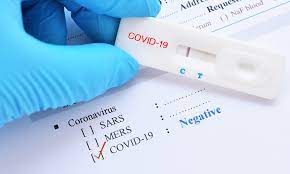
[dropcap]A[/dropcap] clinical study named UniCoV will explore rapid testing in students and staff across four Irish universities to monitor and develop early warning systems of Covid-19 cases.
The study has been led by NUI Galway (NUIG) and since July 28th a national total of more than 1,400 participants have registered for the study where they will be tested using a number of different Covid-19 testing methods.
These methods include Saliva PCR tests, Saliva LAMP tests, and Lateral Flow Antigen Tests.
The study will also conduct wastewater surveillance to detect traces of Covid-19 in human waste.
“Self-testing methods are key to allowing us to live with Covid-19 and returning to a world where Covid is treated as an endemic disease similar to Influenzas,” Dr. John MacSharry, a Co-Principal Investigator of the UniCoV team and lecturer at University College Cork told the College View.
Trinity College Dublin (TCD), University College Dublin (UCD), and University College Cork (UCC) are also taking part in the UniCoV study.
Among those participating in the study are UCC’s Olympic medal-winning rowers Emily Hegarty and Paul O’Donovan, who encourage others to get involved in the study as well.
The participants will be tested twice weekly and drop off their samples for analysis at each drop off points, where their results will be available on the UniCoV app.
Upon a positive result, the participants may be tested further with other testing methods, some of which are more sensitive, to confirm infection.
The findings will be used to develop information on early warning systems on how outbreaks can be controlled moving forward.
“We will be able to compare the sampling and testing methods, antigen versus RT-PCR, which could transform how patients provide samples to doctors and also perform guided self testing allowing for rapid results”, Dr. MacSharry outlined.
Dr. MacSharry also claims the study’s tests may allow UniCov to determine asymptomatic spread rates.
He added that so far, his colleagues are happy with the number of participants but encourage as many students to sign up as possible.
“As autumn approaches, a combination of more indoor activities and increased humidity and cooler air will allow for viral infection,” he said.
“Our aim is to detect Covid-19 spread but also those who may be asymptomatic and perhaps accidentally spreading Covid-19 to their family and friends.”
In the future, UniCoV plans to use the findings from these four pilot sites to roll out the study to all third-level institutions, and potentially secondary and primary schools.
Miriam Frim
Image Credit: European Pharmaceutical Review



